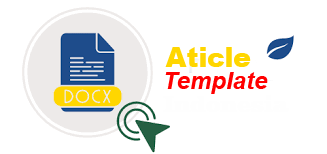Klasifikasi Penyakit Tanaman Daun Tomat Menggunakan Transfer Learning
DOI:
https://doi.org/10.30865/json.v6i4.8948Keywords:
Klasifikasi Citra, Penyakit Daun Tomat, Transfer Learning, DenseNet, Deep Learning PertanianAbstract
Leaf diseases in tomato plants can significantly reduce crop yields and threaten agricultural sustainability. This study proposes a multi-class classification approach for tomato leaf diseases using transfer learning with pre-trained CNN architectures, specifically DenseNet121 and DenseNet169. The dataset used is a subset of PlantVillage, consisting of six disease classes and healthy leaves, with preprocessing steps including image augmentation and resizing. The training strategy involves two phases: feature extraction and fine-tuning, optimized using the Adam algorithm and categorical cross-entropy loss function. Evaluation metrics such as accuracy, precision, recall, and F1-score show that the DenseNet121 model achieves the best performance, reaching an accuracy of 96.23%, followed by MobileNetV2 with 92.89%. Loss curves and confusion matrix analysis confirm that the model performs classification tasks with stability and high precision, despite some misclassifications between visually similar disease classes. This study demonstrates that transfer learning with DenseNet—particularly DenseNet121 is effective for automatic and efficient classification of various tomato leaf diseases, offering potential for real-world implementation as a computer vision-based plant disease diagnosis system.References
W. Bihon, K. E. Ognakossan, J. B. Tignegre, P. Hanson, K. Ndiaye, and R. Srinivasan, “Evaluation of Different Tomato (Solanum lycopersicum L.) Entries and Varieties for Performance and Adaptation in Mali, West Africa,” Horticulturae, vol. 8, no. 7, 2022, doi: 10.3390/horticulturae8070579.
D. R. Panthee, A. Pandey, and R. Paudel, “Multiple Foliar Fungal Disease Management in Tomatoes: A Comprehensive Approach,” Int. J. Plant Biol., vol. 15, no. 1, pp. 69–93, 2024, doi: 10.3390/ijpb15010007.
V. Ghimirey, J. Chaurasia, and S. Marahatta, “PLANT NUTRITION DISORDERS?: INSIGHTS FROM CLINIC ANALYSES AND Agriculture Extension in Developing Countries PLANT NUTRITION DISORDERS?: INSIGHTS FROM CLINIC ANALYSES AND THEIR,” no. May, 2024, doi: 10.26480/aedc.01.2024.09.17.
A. Abbas et al., “Drones in Plant Disease Assessment, Efficient Monitoring, and Detection: A Way Forward to Smart Agriculture,” Agronomy, vol. 13, no. 6, 2023, doi: 10.3390/agronomy13061524.
M. A. John, I. Bankole, O. Ajayi-Moses, T. Ijila, T. Jeje, and P. Lalit, “Relevance of Advanced Plant Disease Detection Techniques in Disease and Pest Management for Ensuring Food Security and Their Implication: A Review,” Am. J. Plant Sci., vol. 14, no. 11, pp. 1260–1295, 2023, doi: 10.4236/ajps.2023.1411086.
T. Shi et al., “Recent advances in plant disease severity assessment using convolutional neural networks,” Sci. Rep., vol. 13, no. 1, pp. 1–13, 2023, doi: 10.1038/s41598-023-29230-7.
P. Yan et al., “A Comprehensive Survey of Deep Transfer Learning for Anomaly Detection in Industrial Time Series: Methods, Applications, and Directions,” IEEE Access, vol. 12, no. January, pp. 3768–3789, 2024, doi: 10.1109/ACCESS.2023.3349132.
Y. Hou, Z. Wu, X. Cai, and T. Zhu, “The application of improved densenet algorithm in accurate image recognition,” Sci. Rep., vol. 14, no. 1, pp. 1–14, 2024, doi: 10.1038/s41598-024-58421-z.
J. Lu, L. Tan, and H. Jiang, “Review on convolutional neural network (CNN) applied to plant leaf disease classification,” Agric., vol. 11, no. 8, pp. 1–18, 2021, doi: 10.3390/agriculture11080707.
W. B. Demilie, “Plant disease detection and classification techniques: a comparative study of the performances,” J. Big Data, vol. 11, no. 1, 2024, doi: 10.1186/s40537-023-00863-9.
S. Albahli and M. Nawaz, “DCNet: DenseNet-77-based CornerNet model for the tomato plant leaf disease detection and classification,” Front. Plant Sci., vol. 13, no. September, pp. 1–19, 2022, doi: 10.3389/fpls.2022.957961.
Downloads
Published
How to Cite
Issue
Section
License
Copyright (c) 2025 Tuti Andriani, Muhammad Iqbal

This work is licensed under a Creative Commons Attribution 4.0 International License.

This work is licensed under a Creative Commons Attribution 4.0 International License
Authors who publish with this journal agree to the following terms:
- Authors retain copyright and grant the journal right of first publication with the work simultaneously licensed under Creative Commons Attribution 4.0 International License that allows others to share the work with an acknowledgment of the work's authorship and initial publication in this journal.
- Authors are able to enter into separate, additional contractual arrangements for the non-exclusive distribution of the journal's published version of the work (e.g., post it to an institutional repository or publish it in a book), with an acknowledgment of its initial publication in this journal.
- Authors are permitted and encouraged to post their work online (e.g., in institutional repositories or on their website) prior to and during the submission process, as it can lead to productive exchanges, as well as earlier and greater citation of published work (Refer to The Effect of Open Access).




